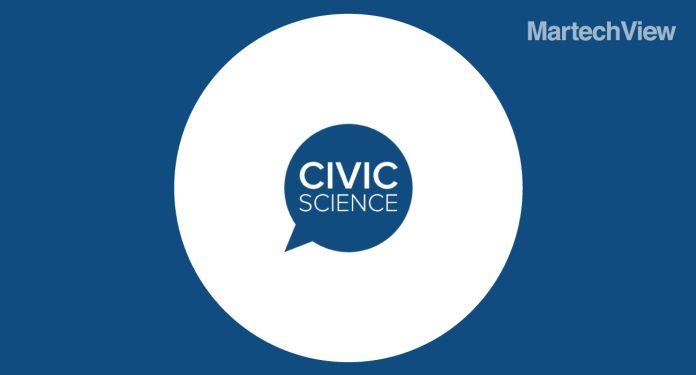Large language models (LLMs), which underpin systems such as OpenAI’s ChatGPT and Google’s Bard, can often suffer from hallucinations, spouting credible fiction that is unreliable in situations where accuracy is paramount.
CivicScience, the leader in real-time consumer insights, announced the release of a generative AI analytics assistant that uniquely solves trust issues surrounding this rapidly expanding technology, making it safe for use in critical business decisions.
“GenAI is transforming how corporate leaders get value from data, and the guardrails we’ve created with our new Sage AI product will speed adoption of this exciting technology in better understanding consumer behavior and intent,” said CivicScience founder and CEO John Dick, adding that the company also has included similar safety measures in other AI products.
Large language models (LLMs), which underpin systems such as OpenAI’s ChatGPT and Google’s Bard, can often suffer from hallucinations, spouting credible fiction that is unreliable in situations where accuracy is paramount.
Sage relies on an “AI sandwich” to guard against these problems. ChatGPT serves as the bread, interpreting questions from users and summarizing results. The meat of the sandwich is CivicScience’s proprietary systems that perform live statistical analyses on a database of nearly 600,000 poll questions and five billion responses from millions of American consumers.
When Sage users pose consumer analytics questions in plain English, such as, “What are luxury car-buying trends among middle-aged women in the Northeast?” they receive responses with extensive citations pointing back to source data in CivicScience’s InsightStore, as well as available spreadsheet download with expanded underlying data. The system also evaluates and scores every AI-generated response for veracity as an extra check.
“GenAI will ultimately liberate data-driven companies from the drudgery of processing data and let them focus more on the ‘why’ behind insights,” added Dick. “Sage just takes a lot of the worry out of that by ticking and tying every number back to data that our customers have trusted for years.”
Another challenge Sage solves is how CivicScience can leverage its daily conversations with a half million American consumers, resulting in more than four million new poll responses daily.
“For most companies, GenAI is just a search engine on steroids that artfully summarizes static documents and draws connections among different texts, but this approach doesn’t work with massive streams of data that get larger every day,” said Joseph Galarneau, CivicScience Chief Product Officer. “We think there’s huge potential at the intersection of LLMs and dynamic data, where we’re focusing our research efforts.”
Among the first martech products to use OpenAI’s next-generation LLM, released just two weeks ago, Sage is currently available via a webchat interface and soon will have tie-ins to Slack and Microsoft Teams to connect to any enterprise employee. The system can understand queries in more than 100 languages and will eventually be able to converse in many of them. Sage has been in beta since the summer with more than 30 companies, including several Global 2000 firms.
Sage is just the latest AI product from CivicScience, launched over a decade ago from an incubator at global computer science leader Carnegie Mellon University. Earlier this year, the company’s QGen poll generation platform, which uses GenAI combined with human review for every question, demonstrated a 10x improvement in internal process efficiency while including AI safety measures. The company’s InsightStore analytics application has employed supervised and unsupervised machine learning for years.










